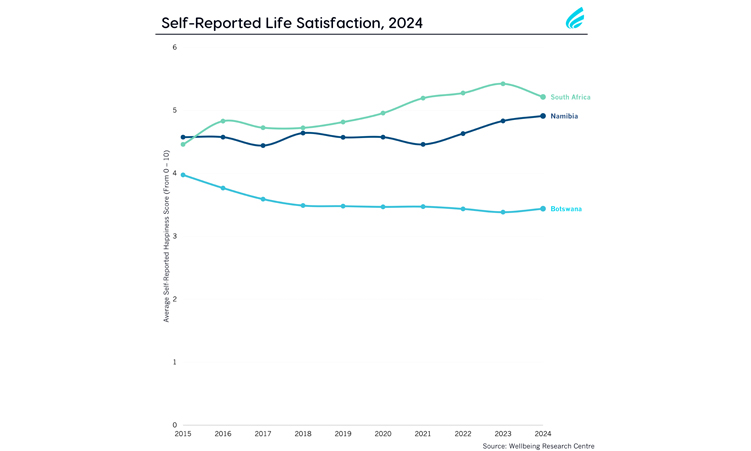AFRICA’S first woman president, Ellen Johnson-Sirleaf, will travel to Namibia on a state visit next week.
The Speaker of the National Assembly, Theo-Ben Gurirab, informed MPs on Tuesday that President Johnson-Sirleaf would address the House next Tuesday. A Foreign Ministry official told The Namibian on enquiry yesterday that the Liberian head of state was expected to arrive in Windhoek on Sunday for a three-day visit.”Further details will be disclosed at the end of the week,” the official, who spoke on condition of anonymity, added.Ellen Johnson-Sirleaf was born in 1938 in Liberia.She is Africa’s first elected female head of state and Liberia’s first elected female president.She was elected president in the 2005 elections and took office on January 16 2006.President Johnson-Sirleaf graduated from the College of West Africa (Monrovia) with a Bachelor of Science degree and furthered her studies and her career in the USA.In 1971 she completed a Master of Public Administration from Harvard University’s John F.Kennedy School of Government.In November 2007, US President George W.Bush awarded Johnson-Sirleaf the Medal of Freedom, the highest civilian award given by the United States.Returning to Liberia after Harvard, Johnson-Sirleaf became Assistant Minister of Finance in President William Tolbert’s administration.In 1980, Tolbert was overthrown and killed by army sergeant Samuel Doe, ending decades of relative stability.Doe was a member of the Krahn ethnic group and was the first Liberian president not to be descended from the elite ex-American slave community, referred to in Liberia as “Americo-Liberians”.For the next ten years, Doe allowed the Krahn people to dominate public life.After the overthrow of Tolbert, Johnson-Sirleaf went into exile in Nairobi, Kenya, where she worked for CitiBank.She returned home to run for the Senate in 1985, but when she spoke out against Doe’s military regime, she was sentenced to ten years in prison.Released after a short period, she moved to the US, but returned to Liberia again in 1997 in the capacity of an economist, working for the World Bank and CitiBank in Africa.Initially supporting Charles Taylor’s bloody rebellion against President Samuel Doe in 1990, she later opposed him, and ran against him in the 1997 presidential election.She managed only 10 per cent of the votes, as opposed to Taylor’s over 75 per cent.Taylor charged her with treason.She campaigned for the removal of President Taylor from office, playing an active and supportive role in the transitional government, as the country prepared itself for the 2005 election.With Taylor’s departure, she returned to take over the leadership of the Unity Party.Additional information: WikipediaA Foreign Ministry official told The Namibian on enquiry yesterday that the Liberian head of state was expected to arrive in Windhoek on Sunday for a three-day visit. “Further details will be disclosed at the end of the week,” the official, who spoke on condition of anonymity, added.Ellen Johnson-Sirleaf was born in 1938 in Liberia.She is Africa’s first elected female head of state and Liberia’s first elected female president.She was elected president in the 2005 elections and took office on January 16 2006.President Johnson-Sirleaf graduated from the College of West Africa (Monrovia) with a Bachelor of Science degree and furthered her studies and her career in the USA.In 1971 she completed a Master of Public Administration from Harvard University’s John F.Kennedy School of Government.In November 2007, US President George W.Bush awarded Johnson-Sirleaf the Medal of Freedom, the highest civilian award given by the United States.Returning to Liberia after Harvard, Johnson-Sirleaf became Assistant Minister of Finance in President William Tolbert’s administration.In 1980, Tolbert was overthrown and killed by army sergeant Samuel Doe, ending decades of relative stability.Doe was a member of the Krahn ethnic group and was the first Liberian president not to be descended from the elite ex-American slave community, referred to in Liberia as “Americo-Liberians”.For the next ten years, Doe allowed the Krahn people to dominate public life.After the overthrow of Tolbert, Johnson-Sirleaf went into exile in Nairobi, Kenya, where she worked for CitiBank.She returned home to run for the Senate in 1985, but when she spoke out against Doe’s military regime, she was sentenced to ten years in prison.Released after a short period, she moved to the US, but returned to Liberia again in 1997 in the capacity of an economist, working for the World Bank and CitiBank in Africa.Initially supporting Charles Taylor’s bloody rebellion against President Samuel Doe in 1990, she later opposed him, and ran against him in the 1997 presidential election.She managed only 10 per cent of the votes, as opposed to Taylor’s over 75 per cent.Taylor charged her with treason.She campaigned for the removal of President Taylor from office, playing an active and supportive role in the transitional government, as the country prepared itself for the 2005 election.With Taylor’s departure, she returned to take over the leadership of the Unity Party.Additional information: Wikipedia
Stay informed with The Namibian – your source for credible journalism. Get in-depth reporting and opinions for
only N$85 a month. Invest in journalism, invest in democracy –
Subscribe Now!










